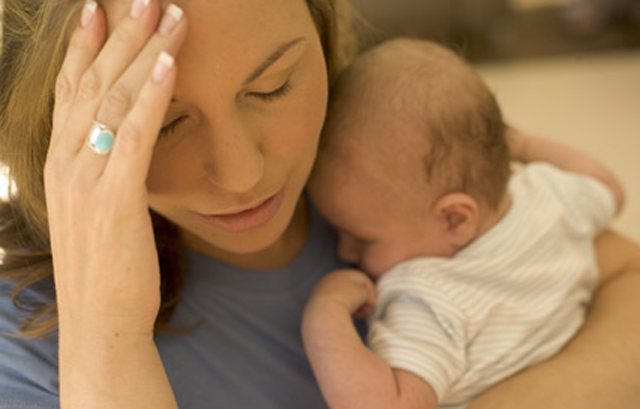Usually, we associate the arrival of a new baby with joy and happiness. However, it is also a stressful time for new parents to adjust to the changes, especially the new mother. This is when women are susceptible to mood changes in varying degrees. From just the baby blues, to major depressive episode, or worst case scenario, postpartum psychosis; needless to say, it’s important for new mothers to recognise some of the signs and symptoms of Postpartum Depression (or Post Natal Depression). In fact, just getting pregnant is one of the biggest risk factors for a woman to develop mental illness.
A combination of factors can contribute to Postpartum Depression, and other types of mental illness. They can be biological, psychological and social. These includes previous mental health problems, family history of mental health problems, lack of social support, experience of abuse, low self-esteem, poor living conditions and major life events.
Postpartum Depression can manifest in different ways. The symptoms can begin soon after birth, lasting for months, or in severe cases for more than a year. Most of the time, it begins few months after Childbirth. Here are the key symptoms:
- a persistent feeling of sadness and low mood
- loss of interest in your surroundings and no longer enjoying things that used to give you pleasure
- lack of energy and feeling tired all the time
Other symptoms can include:
- sleep disturbance, such as not being able to fall asleep during the night or waking up earlier than normal.
- difficulties with concentration and making decisions
- poor appetite or an increase in appetite
- feeling very agitated or very apathetic (can’t be bothered)
- feelings of guilt and self-blame
- thinking about suicide or self-harm.
- thinking about harming your baby
If you have been experiencing five or more of the above symptoms for more than 2 weeks with at least one of the symptoms being depressed mood or loss of interest or pleasure, you are mostly having a major depressive episode. If the symptoms started after you have given birth, then it’s more likely to be Postpartum Depression. You should contact your doctor right away to get help.
The treatment for Postpartum Depression usually includes therapy, medication, or both. Your doctor will be able to recommend suitable medication for you, especially if you are breastfeeding.
A supportive network can help ease your stress thus improve your condition. You can ask your partner, family and friends for help with the baby’s needs. It’s difficult, but don’t hide your feelings. You need to know that nobody is perfect, so don’t try to do too much on your own. Try to spend time outdoors to relax, and rest as much as you can. There’s also the option of joining a support group to talk to other mothers with similar condition.
It is important for partners, family members and friends to recognise signs of Postpartum Depression because many mothers do not recognise it, and thus delay in seeking treatment. It can be subtle and you might notice that ‘they are not themselves”. Some warning signs include:
- They often cry for no obvious reason.
- They have difficulties bonding with their baby.
- They seem to be neglecting themselves, for example, not changing clothes, or not showering
- They lose interest in things that usually brings them pleasure
- They worry that something is wrong with their baby, even if you reassure them.
If you think someone you know has postpartum depression, encourage them to open up and talk about their feelings to you, a friend, or their doctor.




I got this web page from my friend who told me on the topic of this web site and at the moment this time I am visiting this web site and reading very informative content at this place.
Just desire to say your article is as astounding. The clarity in your post is just nice and i can assume you are an expert on this subject. Well with your permission let me to grab your RSS feed to keep up to date with forthcoming post. Thanks a million and please carry on the enjoyable work.
Hi Monroe, thank you for your compliments. Glad that you enjoyed reading our articles. You can subscribe via email to get updates or simply follow us on Facebook.
First off I want to say wonderful blog! I had a quick question
which I’d like to ask if you do not mind. I was interested to know how you center yourself and clear your mind
before writing. I’ve had a hard time clearing my thoughts in getting my thoughts out there.
I truly do take pleasure in writing but it just seems like the first 10 to 15 minutes are generally
wasted just trying to figure out how to begin. Any ideas or hints?
Kudos!
Do not go to an emergency room! Contact your local mental health professionals. Most hospital ER's do not recognize PPS and automatically call CPS. The mother is further buried in a tragic situation when all she has done has ask for help. Sometimes GYNs drop the ball as well, giving you medicine that exacerbates the problem PLEASE go to a mental health professional, your child is worth it!